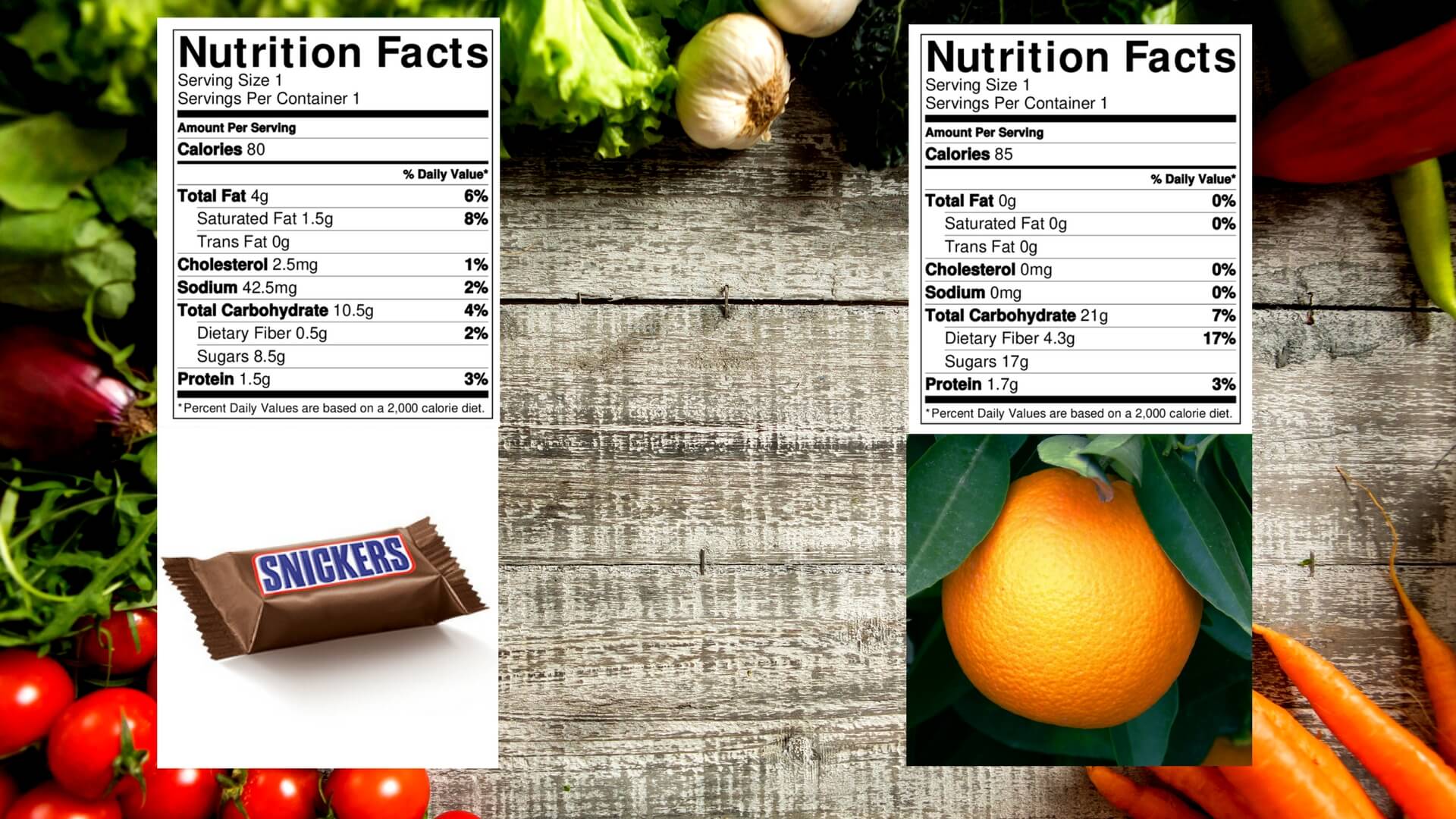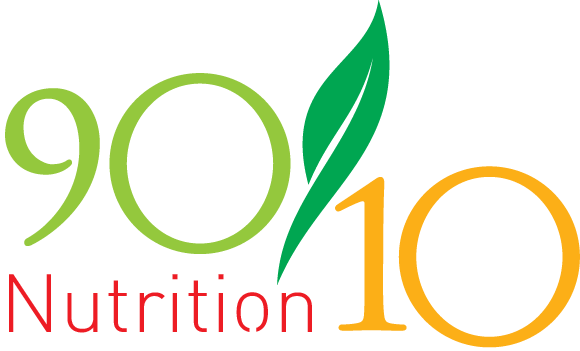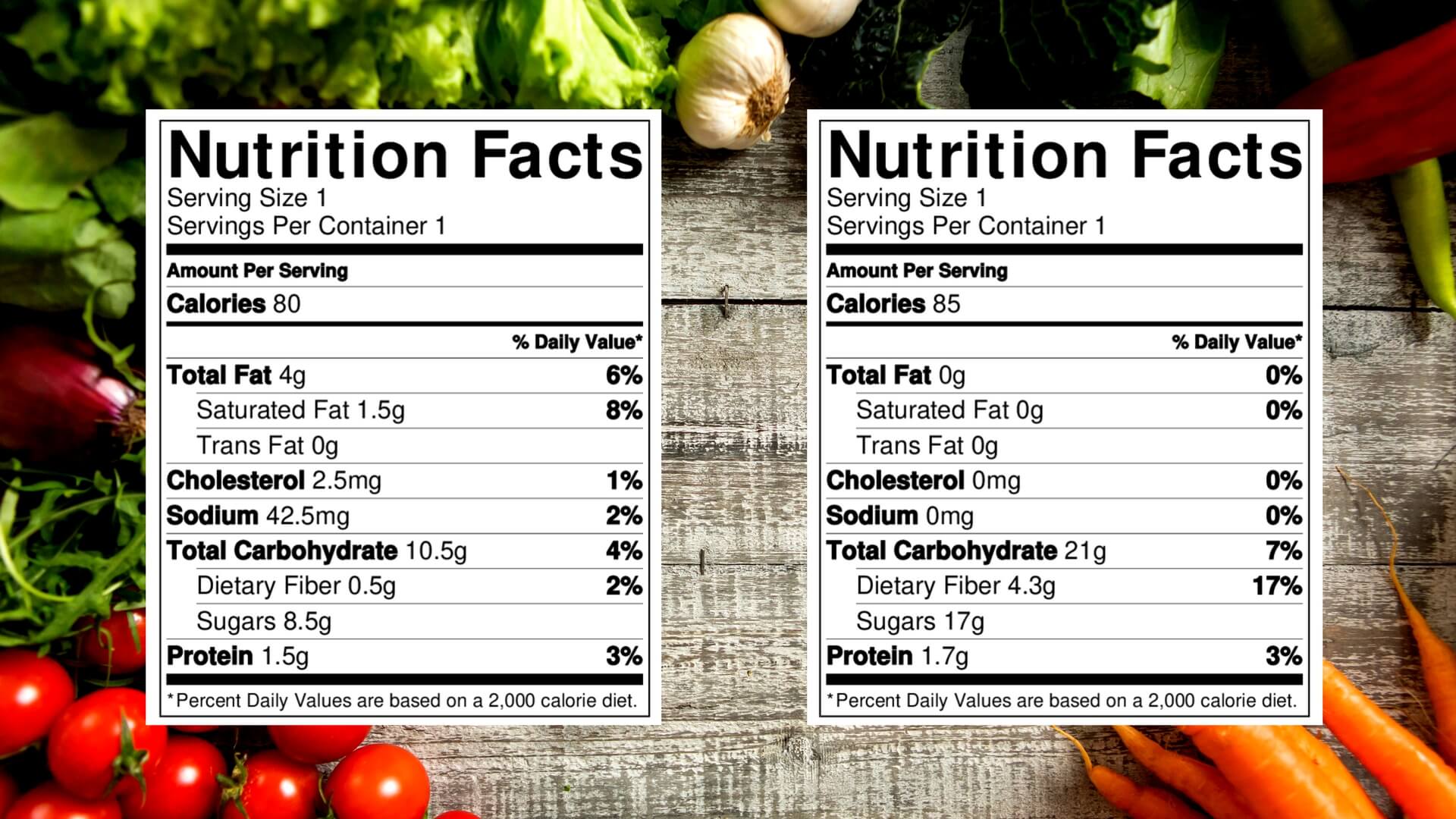Does fruit sugar act the same in your body as processed and refined sugar? It’s a good question, so let’s talk about fruit sugar vs processed pugar.
Your body converts both of them into glucose for fuel. Both can raise your blood sugar. Some people even like to point out that some fruits have as many (or more) grams of sugar as a candy bar.
Check out this comparison that I did on my personal Facebook page just the other day. The image below is of 2 different items. I simply asked my Facebook following which one they thought was the healthier choice and why they felt that way.
There were a variety of answers. I’ll let you go ahead and pick and see which one you choose. After you pick, click the button below the image to reveal the two items.
The one on the left is a fun size snickers bar. You can verify the nutritional information HERE (note that the site shows the info for 2 bars and this graphic shows the info for 1 bar).
The one on the right is a large orange (about 180g or about 1 cup of orange pieces).

So Does It Matter?
Which one did you pick?
A lot of people picked the one on the left because it has lower sugar grams and carbs than the one on the right. That’s actually totally understandable because it’s IMPOSSIBLE to know which one is healthier with this information. You need the ingredients.
Now, when you know what the two items are, you’re more than likely going to pick the one on the right. Correct? Even so, it raises a good question. There really are more carb grams and sugar grams in an orange than a fun size snickers.
So, does that mean the orange isn’t really a healthy choice? Does it really matter which one I pick?
It Matters. Here's Why:
1) Vital Nutrients
When you consume a whole fruit, such as an orange, you are getting a host of various nutrients that are naturally in that fruit for a reason. These nutrients likely don’t act independently but rather cohesively to help digest the food, convert it to fuel, and make it useable for your body in the best way.
When sugar is refined, as the sugar is in the Snicker’s bar, it is stripped of many (if not all) of the vitamins and minerals and other nutrients that are naturally found in the source (such as in sugar beets).
You can apply this same idea to refined grains. When grains are refined, they are stripped of most of the vitamins and minerals that actually help your body break them down. That’s why they are often fortified with vitamins and minerals!
The orange in the example above has Vitamin B6 in it. This vitamin is known as an essential nutrient for helping to break down carbohydrates and convert them to glucose for the body to use as fuel. Refined sugars and carbs will not usually still have these types of essential nutrients present unless they have been added by fortification.
2) Body Chemistry
This goes along with the first point, but I think it deserves its own section.
When you take in refined sugars and carbs, it throws off your pH. Refined sugars and carbs are generally more acidic, and since they often don’t have many vitamins or minerals in them, the body has to control pH with alkaline minerals from elsewhere. Namely, your bones! It may also take things like iodine which would otherwise be used by things like your thyroid (which controls metabolism). Here’s a decent article on this process. There’s also a great video on this post from a while back.
3) Fiber
Fruit has fiber that helps regulate how your body absorbs sugar. Protein and fat also help slow the process and so adding a few almonds to your fruit snack (snack consisting of fruit…not a “fruit snack”) can be beneficial as well.
Sugar Grams and Ingredients
It’s important to distinguish between added sugar and grams of sugar.
The nutritional label just shows the grams of sugar. That is a lump sum of any added/refined sugars and the sugars found naturally in the food. In the case of the orange, there is no added/refined sugar. In the case of the Snicker’s bar, it’s almost ALL added/refined sugar.
There is a change in the works for nutrition labels to require separate line items for the amount of added sugar. This was supposed to go into effect by July of 2018, but the deadline has been extended to 2021. Separate line items would help a lot but until then, you NEED the ingredients to be able to tell if the item has added sugar. If it does, stay away!




Comments (1)
Makes sense